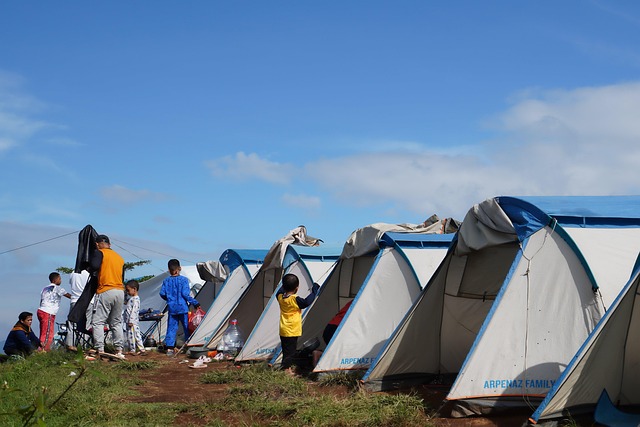Rocky Creek Youth Camp, established in the late 1970s, faced legal challenges from the early 2000s onwards due to safety concerns. Subsequent lawsuits alleged emotional abuse, inadequate medical care, and breach of contract, highlighting issues with staff mistreatment and camp conditions. Recent surge in lawsuits seeks justice for victims and urges stricter regulations within the youth camping industry, potentially reshaping operations for enhanced participant safety.
“Uncover the controversial world of the Rocky Creek Youth Camp through this comprehensive analysis of recent legal cases. With a historical overview setting the stage, we explore the allegations and charges that have sparked public interest. Delve into the complex web of disputes, where former campers and staff members bring forth their stories. This article examines the potential implications for the camp’s future prospects, offering insights into the ongoing debate surrounding the Rocky Creek Youth Camp lawsuit.”
- Historical Overview of Rocky Creek Youth Camp
- Allegations and Charges in Recent Lawsuits
- Potential Implications and Future Prospects
Historical Overview of Rocky Creek Youth Camp

Rocky Creek Youth Camp, nestled in the serene landscapes of [location], has been a prominent gathering place for young minds since its establishment in the late 1970s. Initially designed as a summer retreat, it evolved into a year-round program offering various activities and services tailored to at-risk youth. Over the years, the camp gained recognition for its unique approach to mentoring and rehabilitation. However, amidst its positive impact, Rocky Creek Youth Camp has faced legal challenges, with multiple lawsuits marking significant milestones in its history.
The first notable lawsuit against the camp arose in the early 2000s, highlighting concerns regarding the safety and well-being of the youths in its care. This case brought to light alleged instances of neglect and poor living conditions, prompting a thorough investigation. Since then, several other Rocky Creek Youth Camp lawsuits have been filed, each addressing different aspects of camp operations, including allegations of emotional abuse, inadequate medical care, and breach of contract. These legal battles have not only shed light on critical issues within the camp but also sparked conversations about the regulatory framework governing such facilities.
Allegations and Charges in Recent Lawsuits

The recent surge in legal cases against Rocky Creek Youth Camp has brought to light a series of allegations and charges that have sparked public concern. Plaintiffs, primarily former campers and their families, have leveled accusations ranging from physical and sexual abuse to negligence and mistreatment during their stays at the camp. These lawsuits detail instances where minors were allegedly subjected to harmful and unsafe conditions, including excessive punishment, inadequate supervision, and failure to provide proper medical care.
The charges against Rocky Creek Youth Camp vary across cases but often include claims of assault, battery, emotional distress, and negligence. Plaintiffs argue that the camp’s staff members failed to uphold their duty of care, resulting in severe physical and psychological harm to vulnerable young individuals. These legal actions aim to seek justice for victims and hold the camp accountable for its alleged failure to maintain a safe environment, emphasizing the need for increased oversight and regulation within the youth camping industry.
Potential Implications and Future Prospects

The legal cases against Rocky Creek Youth Camp could have significant implications for the future of similar youth facilities and recreational centers. As these lawsuits uncover potential issues within the camp’s operations, it sets a precedent for heightened scrutiny and stricter regulations in the industry. This could lead to improved safety measures, enhanced employee training, and more transparent practices across the board.
With each Rocky Creek Youth Camp lawsuit, there’s an opportunity to shape better policies and procedures that prioritize the well-being of youth participants. Future prospects include a potential shift towards more rigorous background checks for staff, better oversight by regulatory bodies, and increased community engagement in monitoring these facilities. These changes could ensure that similar camps operate with greater accountability and reduce the risk of future harm.
The legal cases against Rocky Creek Youth Camp highlight a complex web of allegations and potential systemic issues. By examining the historical context, recent lawsuits, and their implications, it’s evident that addressing these concerns is crucial for the camp’s future. As the search for justice unfolds, ensuring the well-being and safety of youth remains paramount, with lessons learned potentially guiding a new direction for Rocky Creek Youth Camp. The ongoing discussions around these lawsuits could serve as a catalyst for positive change, reshaping the camp into a more responsible and effective institution.
